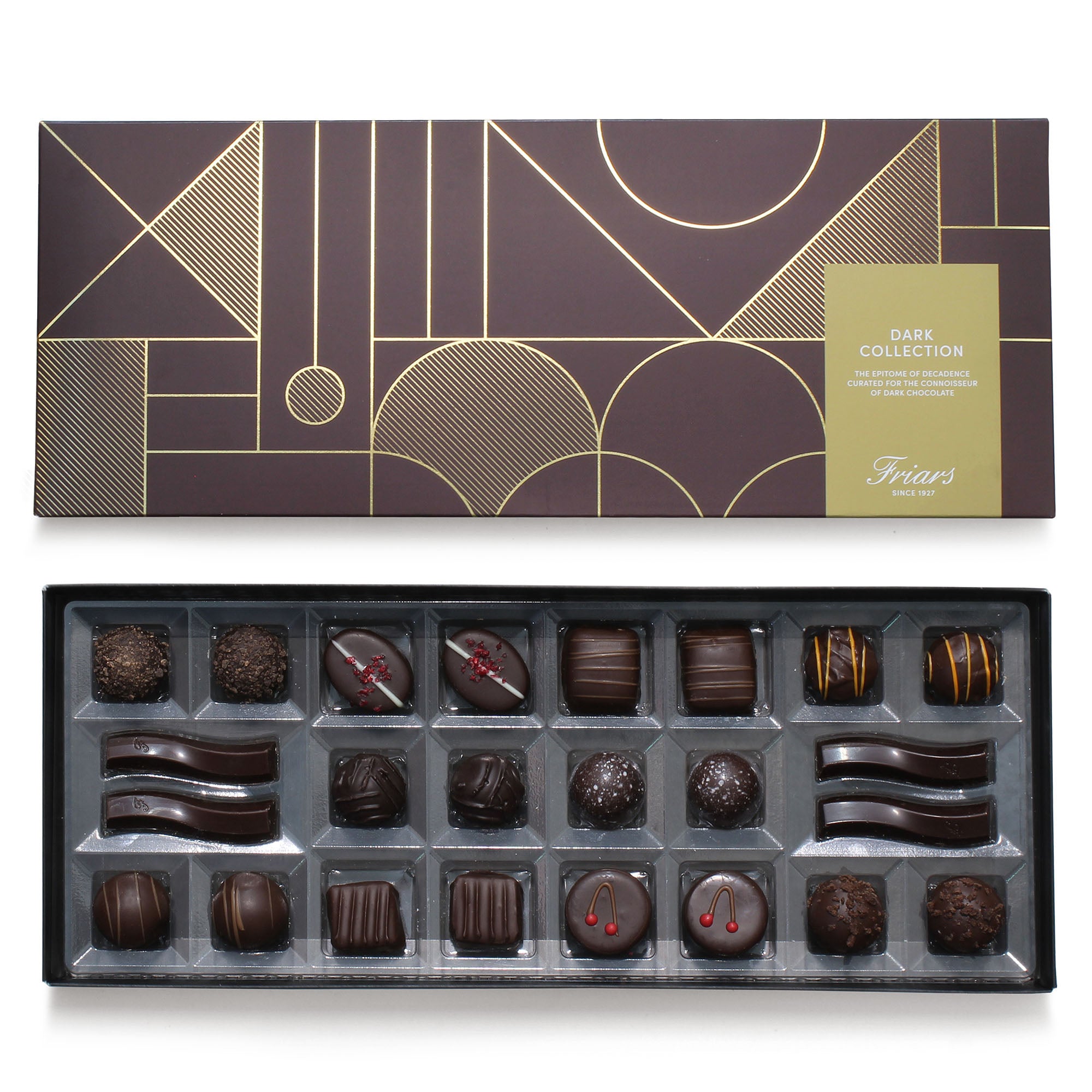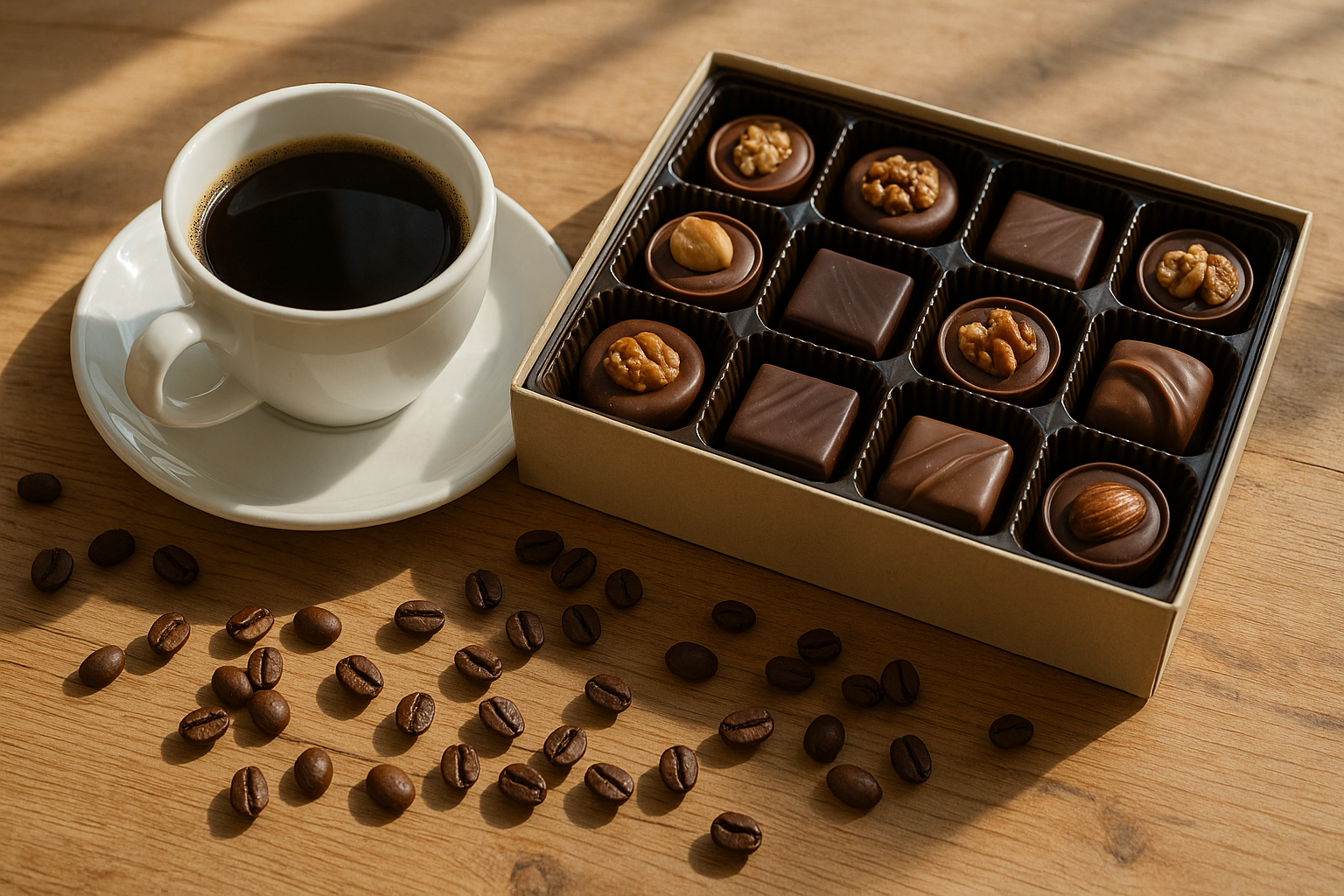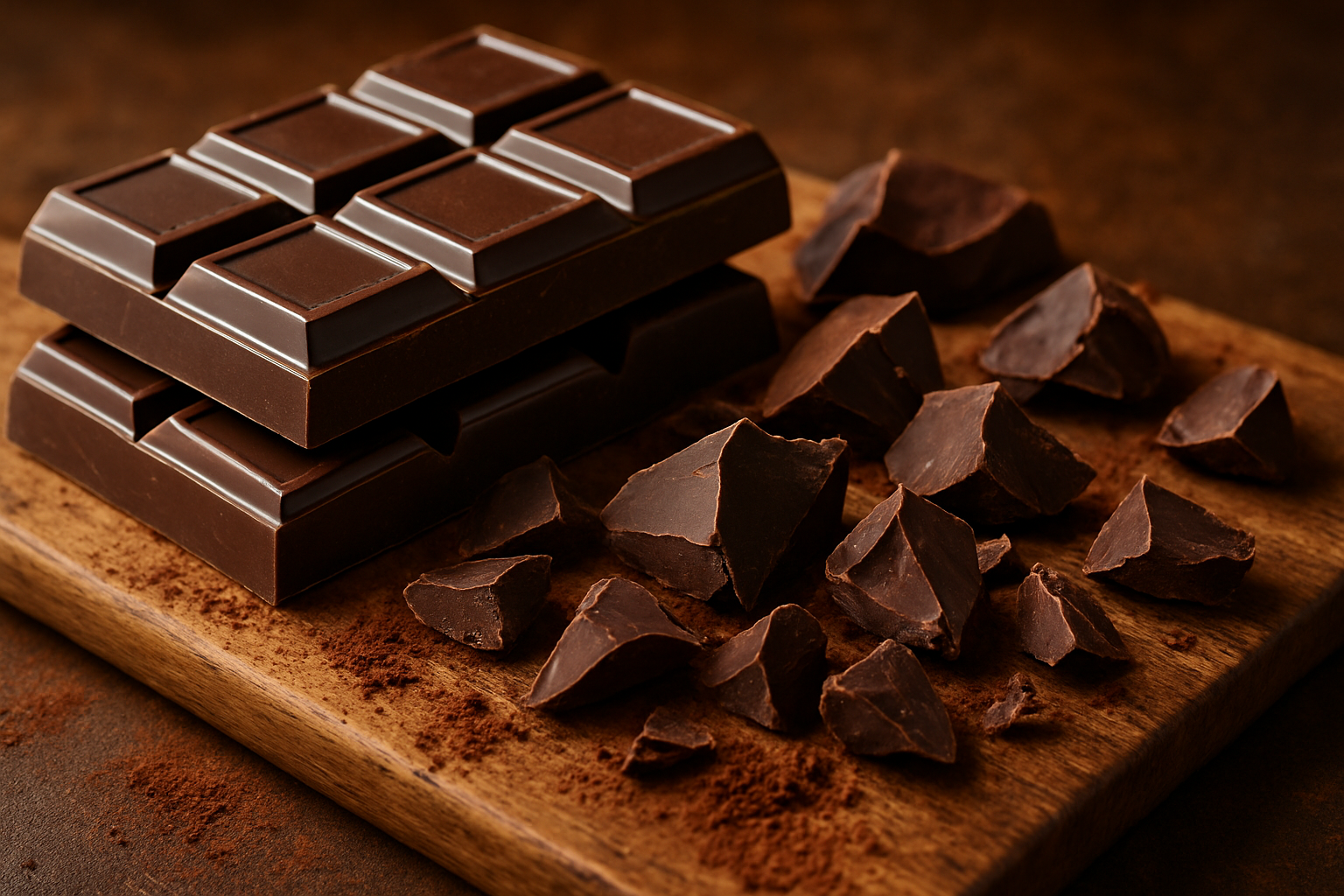Chocolate. The very word conjures images of rich indulgence, comforting sweetness, and perhaps a touch of guilt. For many, the choice boils down to a simple preference: dark or milk. But beyond personal taste, a crucial question often lingers: which one is actually healthier? Dark chocolate health benefits have long been hailed. Still, the answer, as with many nutritional debates, isn't always black and white, but delving into the composition and benefits of each reveals a clear winner in the health stakes. The battle is on, milk chocolate v dark chocolate. Which will be your winner?
Both dark and milk chocolate originate from the cacao bean, a treasure trove of naturally occurring compounds. However, the journey from bean to bar involves distinct processes and the addition of different ingredients, ultimately leading to significant nutritional variations. Understanding these differences is key to making informed choices about our sweet treats.
The Dark Side of Deliciousness: Unveiling Dark Chocolate's Health Credentials
Dark chocolate, in its purest form, boasts a higher percentage of cacao solids – typically ranging from 50% to 90% or even higher. These cacao solids are where the true nutritional power lies. They are packed with flavonoids, particularly a subgroup called flavanols. These potent antioxidants have been extensively studied for their impressive array of health benefits. Dark chocolate health benefits are attributed to these flavanols.
One of the most well-researched benefits of dark chocolate is its positive impact on cardiovascular health. Flavanols help to relax blood vessels, improving blood flow and potentially lowering blood pressure. They can also help prevent the oxidation of LDL ("bad") cholesterol, a key factor in the development of plaque in the arteries. Studies have even linked moderate dark chocolate consumption to a reduced risk of heart attack and stroke. Dark chocolate v milk chocolate health comparisons hail the formers’ benefit to the heart and cardiovascular system.
Beyond the heart, the antioxidants in dark chocolate exhibit anti-inflammatory properties. Chronic inflammation is implicated in numerous diseases, and the flavanols in dark chocolate can help combat this at a cellular level. This anti-inflammatory action may contribute to the potential protective effects against certain cancers and neurodegenerative diseases.
Furthermore, dark chocolate is a good source of several minerals, including iron, magnesium, copper, and manganese. Iron is crucial for oxygen transport, magnesium plays a vital role in muscle and nerve function, copper aids in energy production, and manganese is involved in bone health and metabolism.
The higher cacao content also means dark chocolate generally contains more fibre than milk chocolate. Fibre is essential for digestive health, promoting feelings of fullness and helping to regulate blood sugar levels.
Finally, while it might seem counter-intuitive, the bitterness of high-quality dark chocolate often translates to a lower sugar content compared to its milkier counterpart. This is a significant advantage for those mindful of their sugar intake.
The Creamy Comfort of Milk Chocolate: A Less Potent Profile
Milk chocolate, as its name suggests, incorporates milk solids into its composition, alongside cocoa solids and sugar. While it amounts of fat are necessary for bodily functions, excessive saturated fat intake can negatively offers a smoother, sweeter taste that many find appealing, this addition significantly alters its nutritional profile. So in the milk chocolate v dark chocolate battle, these additions may detract somewhat from the benefits of milk chocolate.
The inclusion of milk dilutes the concentration of beneficial cacao solids and consequently reduces the amount of health-boosting flavonoids. While milk chocolate still contains some antioxidants, the levels are considerably lower than in dark chocolate. It can be seen then in the dark chocolate v milk chocolate health comparison, dark is thought healthier overall.
The added milk also contributes saturated fat and calories to milk chocolate. While moderate impact cholesterol levels and increase the risk of heart disease.
Furthermore, milk chocolate typically contains a significantly higher sugar content than dark chocolate. This excess sugar contributes to empty calories, can lead to blood sugar spikes and crashes, and increases the risk of weight gain, type 2 diabetes, and dental problems.
While milk chocolate does provide some calcium from the added milk, this benefit is often overshadowed by its higher sugar and saturated fat content.
The Verdict: Dark Chocolate Takes the Crown (with Caveats)
When it comes to dark chocolate v milk chocolate health comparison, dark chocolate is the clear winner. Its higher concentration of cacao solids and potent flavonoids offers significant advantages for cardiovascular health, inflammation, and mineral intake, often with a lower sugar content than milk chocolate. So, dark chocolate health benefits are boosted by higher cacao percentages which in turn means greater levels of health boosting flavonoids.
However, it's crucial to acknowledge some important caveats:
-
Cocoa Percentage Matters: The higher the percentage of cacao solids in dark chocolate, the greater the potential health benefits. Opt for varieties with 70% cacao or higher to maximize flavonoid intake and minimize added sugar.
-
Moderation is Key: Even dark chocolate is calorie-dense and should be consumed in moderation. The recommended serving size is typically around 1-2 small squares (about 30-60 grams) per day. Overindulging, even in dark chocolate, can negate its benefits due to excess calorie and fat intake.
-
Added Ingredients: Be mindful of added ingredients in both dark and milk chocolate. Some bars may contain high levels of sugar, artificial flavours, or unhealthy fats. Choose bars with minimal ingredients and a high percentage of cacao for dark chocolate.
-
Individual Needs: Individuals with specific health conditions, such as dairy allergies or diabetes, should consult with a healthcare professional or registered dietitian for personalized advice on chocolate consumption.
So having looked at the question milk chocolate v dark chocolate and considering the dark chocolate v milk chocolate health comparison benefits, all that remains is to choose your chocolate!
FRIARS
Boasting some of the finest chocolates available, Friars are proud to offer a wide choice for the discerning chocolate lover. In dark or milk form.
The Chocolatier’s Platter
Go big or go home they say. Well they don’t come much bigger and certainly not better than our Chocolatier’s platter. Immerse yourself in the ultimate chocolate indulgence with the Chocolatier's Platter, a stunning large chocolate box curated by our master Chocolatier. Each piece is a testament to artistry and flavour, blending the finest ingredients with unparalleled craftsmanship. This exquisite assortment features a variety of decadent and irresistible creations, hand-selected to captivate every chocolate lover's palate.
-
Just Dark Chocolate Little Luxe
We have tried to capture the deep rich essence of the cocoa beans by selecting chocolates with 60% to 72% cocoa solids, with the flavour of the chocolate dictating the strength of cocoa used.
An exquisite selection of our high cocoa, delectably dark chocolates. Savour our richest, darkest, most decadent collection for the true dark chocolate devotee. Indulge in our Jamaican rum truffle sealed in 72% dark chocolate or a hand dipped walnut vanilla cream with a creamy vanilla fondant and roasted walnut, made for each other. So good we had to have it all year round.
All of this in one box, a perfect gift or sneaky treat for yourself.
No Added Sugar Chocolate Deluxe Box
A giant box of our no added sugar chocolate. With delicious praline, caramel, orange and coffee flavours, sweetened with Maltitol and Steviol Glycosides as a substitute for sugar; these chocolates will indulge the senses with no substitute for taste!
Rum Chocolate Truffles Dark
Always a top combination, rum and chocolate. A heavenly truffle with a fresh cream centre blended with earthy dark chocolate and infused with lashings of Jamaican Rum. Encased in high grade 72% dark chocolate and beautifully finished with a sprinkling of vermicelli, this truly is a magical chocolate!
Just four ideas from a mountain of them. We don’t make it easy, in a good way that is!
In Conclusion:
While milk chocolate can be a pleasurable treat in moderation, dark chocolate, particularly varieties with a high cacao percentage, offers a more compelling nutritional profile. Dark chocolate v milk chocolate health comparison benefits include; rich antioxidant content and potential benefits for heart health and inflammation making it the healthier choice when the chocolate craving strikes. So, the next time you reach for a square of chocolate, consider embracing the darker side for a potentially sweeter path to well-being. Milk chocolate v dark chocolate? To be fair at the end of the day, it may just come down to personal preference. Just remember that moderation and mindful selection are the keys to enjoying chocolate as part of a balanced and healthy lifestyle.













